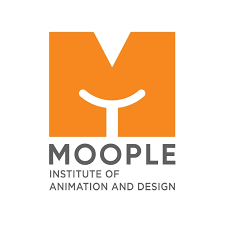Video games have revolutionized the way we tell stories, compete, and get creative. The gaming world is expanding at a faster rate than ever before, with new technology evolving differently in the manner in which video games are developed. If you’ve ever fantasised about creating your games, a Game Design & Development course is your ticket to an exciting career.
This article will tell you what game design and development are, what you will be learning in a professional course, and how to make gaming your lucrative career.
What is Game Design & Development?
Game design is the process of developing exciting, interactive content. It means developing characters, levels, plotlines, and mechanics that give rise to a game that is enjoyable and stimulating. A game designer will consider storytelling, gameplay mechanics, and user experience.
Game development is the technical part of creating a game. The programmers write code, build worlds, and optimise performance. They use programming languages, game engines, and sophisticated tools to release the game on different platforms.
Game developers and designers work together to create masterpieces that reach millions of people around the world.
What Will You Learn in a Game Design & Development Course?
A Game Design & Development course teaches you everything you need to know to build a game right from scratch. Following are the things that you will be learning:
1. Introduction to Game Development
- Studying the gaming industry and job prospects.
- Studying game genres and platforms (PC, mobile, console, VR).
- Game design principles basics.
2. Game Engines & Tools
- Practical training with Unity and Unreal Engine.
- Studying C# and C++ to program games.
- Learning Blender and Maya for 3D modelling.
3. 2D & 3D Game Design
- Creating characters, objects, and game environments.
- Proficiency in animation and visual effects.
- Learning lighting, texture, and rendering.
4. Game Programming & Mechanics
- Programming player controls, AI, and physics.
- Adding collision detection, health management, and power-ups.
- Adding multiplayer features and network programming.
5. User Interface (UI) & User Experience (UX) Design
- Creating menus, buttons, and HUD.
- Creating intuitive navigation and player-friendly designs.
- Improving the gameplay experience based on user feedback.
6. Sound & Music in Games
- Employing background music, sound effects, and voiceovers.
- Learning to utilise sound design tools and software.
- Learning how audio adds to immersion.
7. Virtual Reality (VR) & Augmented Reality (AR) Games
- Learning game development with VR/AR.
- Learning about headsets, motion tracking, and interactive storytelling.
- Creating realistic VR environments.
8. Game Monetisation & Marketing
- Learning about revenue models (in-app purchases, ads, subscriptions).
- Learning how to publish and crowdfund a game.
- Learning how to sell your game for maximum exposure.
9. Capstone Project—Create Your Own Game
- Creating and building a fully playable game.
- Collaborative group work to simulate real-world development scenarios.
- Building a portfolio where you show your work.
The full course sets you up for graduation with the competence to create games for cell phones, computers, and consoles.
Why Game Design & Development is an Excellent Career?
The market for game development software is expected to expand at a compound annual growth rate (CAGR) of 3.22% from 2025 to 2034, from USD 1.40 billion in 2025 to USD 1.83 billion. Furthermore, in 2024, the game development software industry was estimated to be worth USD 1.35 billion.
The main factors propelling the market expansion are the growing popularity of PC gaming and the adoption of AR/VR gadgets.
A few reasons why 3D game design and development is considered to be an excellent career option are as follows:
Mass Demand for Video Game Developers
The gaming sector is booming. New games are released every year, and businesses require talented developers and designers to turn visions into reality. From console gaming to mobile gaming, game development is booming. With the right skills, possibilities are limitless.
Creative Freedom
Game development isn’t office work. It’s a profession in which your creativity takes precedence. You can build characters, create worlds, and establish interactive experiences. If storytelling and innovation excite you, this career permits you to bring your imagination to life.
Work with the Latest Technology
The future of gaming is thrilling. Virtual Reality (VR), Artificial Intelligence (AI), and Cloud Gaming are revolutionising the way we play. Game developers have the opportunity to work with the latest technology and try out new tools. Learning game development keeps you ahead in an industry that never slows down.
Freelancing & Entrepreneurship Opportunities
You don’t need to work for a studio to be successful in game development. Freelancing, making indie games, or making assets for large studios is common among many developers. You can sell your games, make apps, or work with others from around the world. This profession gives you the freedom to do things your way.
High Salary Potential
Game development is lucrative. Major game firms provide six-figure salaries to seasoned professionals. Even as a novice, you can have a competitive salary and increase your compensation in the future. With independent game development and freelancing, you can decide on your rates and make more.
Why Moople Academy for a Game Design & Development Course?
If you desire world-class training, Moople Academy is where you should begin. Here’s why:
`Industry-Expert Teachers: Receive training from our game developers and designers with hands-on project experience.
Practical Experience: Practice what you learn while working on real-time projects and game prototypes.
Job Placements & Career Guidance: Get career advice and job placement assistance.
Newest Tools & Technologies: Learn Unity, Unreal Engine, and other newest game development technologies.
At Moople Academy, you don’t study. You design, innovate, and begin your gaming career.
Conclusion
Game design and development provide limitless scope to creative brains. If you have the correct skills, you can create wonderful games, design interesting experiences, and get employed with leading gaming companies. You can become a game developer, designer, or independent game maker, as per your aspirations. A professional game design course will provide the ideal head start.
Kickstart your gaming career today. Register for a Game Design & Development course with us at Moople Academy!
FAQs
Q1. Do I require coding knowledge to enrol in a game development course?
- Not necessarily! A starter course begins from the very beginning. Real-world projects will help you learn to code in small steps.
Q2. Can I become a game developer without a degree?
- Of course, yes! Game development doesn’t always rely on degrees. Your projects and portfolio are more important than your degree.
Q3. What job opportunities are available after completing a game development course?
- You could be a game developer, game designer, 3D artist, UI/UX designer, level designer, or indie game creator.
Q4. Is freelancing a good career option in game development?
- Indeed, the majority of game developers are self-employed and earn a living by creating games, assets, and mods for different platforms.

